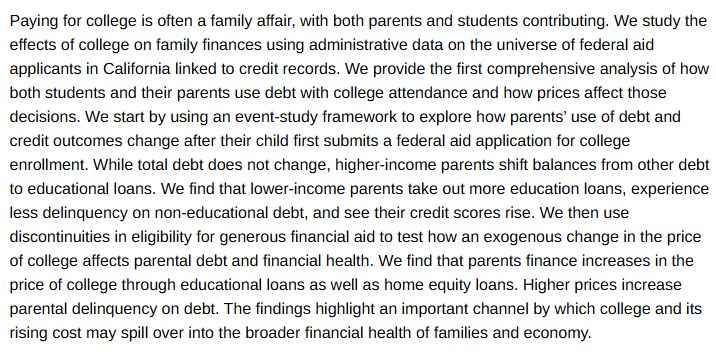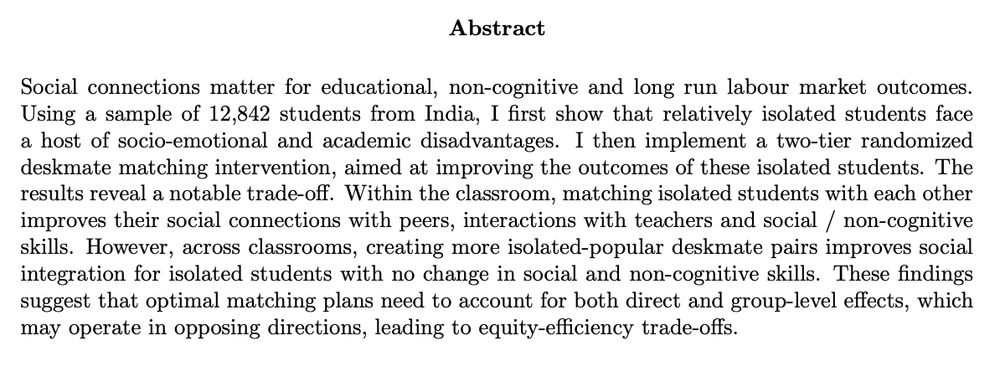Palaash Bhargava
@palaashbhargava.bsky.social
230 followers
510 following
38 posts
Postdoctoral Fellow at University of Chicago
Development and Labour Economist focusing on Social Networks and Education.
Website: https://sites.google.com/view/palaashbhargava
Posts
Media
Videos
Starter Packs
Reposted by Palaash Bhargava
Reposted by Palaash Bhargava









